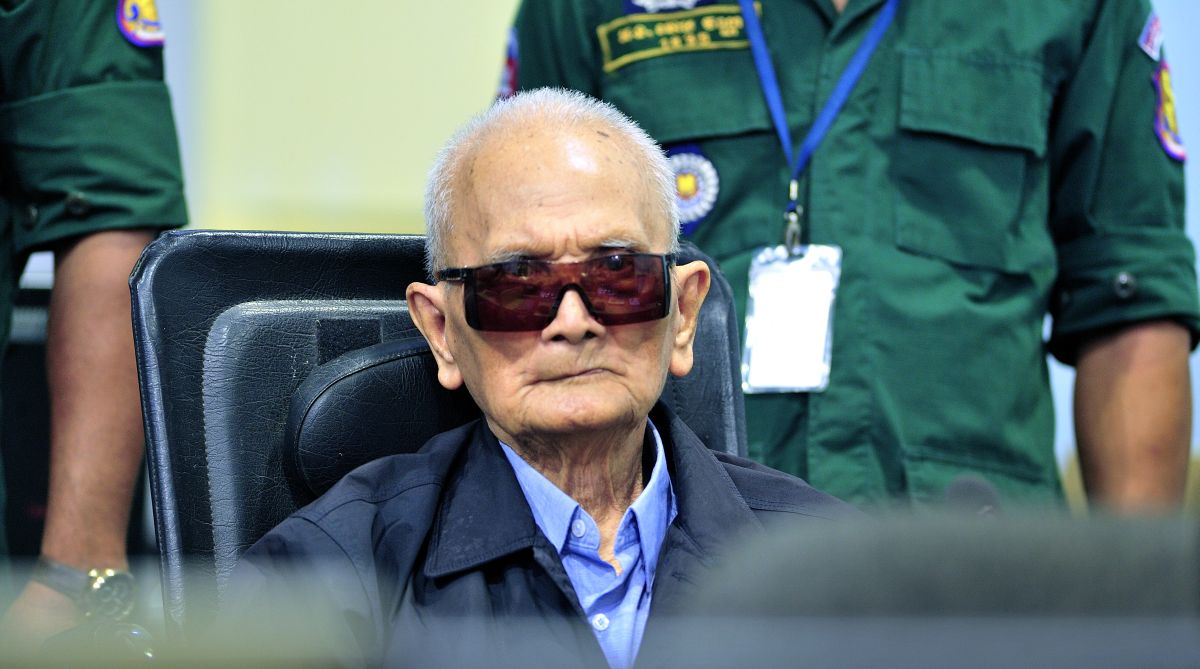Gut-churning visuals of a row of skulls of the victims of the Khmer Rouge regime in Cambodia confirm what they call the “Nuremberg moment” ~ a horrendous phase that alas has lapsed in the limbo of history. The chief significance of Friday’s judgment must be that two most senior Khmer Rouge leaders, who are still alive today, have been found guilty of genocide, almost 40 years since Pol Pot’s brutal Communist regime fell.
Whether or not the present government of Hun Sen had meddled with the court proceedings need not detain us here. The verdict was followed with riveting interest by millions of Cambodians, many of them then unborn. About two million people died during Cambodia’s Khmer Rouge regime. Two of its senior leaders have been on trial on charges of genocide.
Advertisement
Nemesis has eventually caught up with them. Nuon Chea (92), who was second-in-command to Pol Pot, and Khieu Samphan (87), who served as Head of State, were both sentenced to life imprisonment for genocide and crimes against humanity carried out between 1977 and 1979. The judgment is, therefore, a landmark moment for the Khmer Rouge tribunals. The two are already serving life sentences for crimes against humanity.
As senior figures in the Khmer regime, the court declared both men responsible for a welter of crimes ~ murder, extermination, enslavement, deportation, imprisonment, torture, persecution on religious, racial and political grounds, enforced disappearances and mass rape through the state policy of forced marriages.
David Scheffer, who was the UN Secretary-General’s special expert on assistance to the Khmer Rouge trials and the former US ambassador-at-large for issues pertaining to war crimes issues, described the genocide verdict as comparable to the Nuremberg judgment after World W II. The 40-year time-span cannot denude the importance of the order.
The courtroom in the Cambodian capital of Phnom Penh was packed with families of some of the 1.7 million Cambodians who died between 1975 and 1979, through a combination of mass executions, starvation and brutal labour camps, in one of the worst atrocities of the 20th century. It was the worst example of what a government could do.
The impact of this verdict is profoundly critical for those who were affected by the crimes, notably people whose parents were tortured and killed. Nuon Chea, described by the court as “Pol Pot’s right hand”, was found guilty of all charges of genocide of the Vietnamese, former Khmer republic officials and the Cham Muslim minority.
Khieu Samphan was found guilty of the genocide of the Vietnamese, but was cleared of involvement in the genocidal extermination of the Cham. By the time the regime was ousted by Cambodian dissidents and Vietnamese troops in 1979, about 25 per cent of Cambodia’s population had died. At its own stuttering pace, the law has taken its course.











